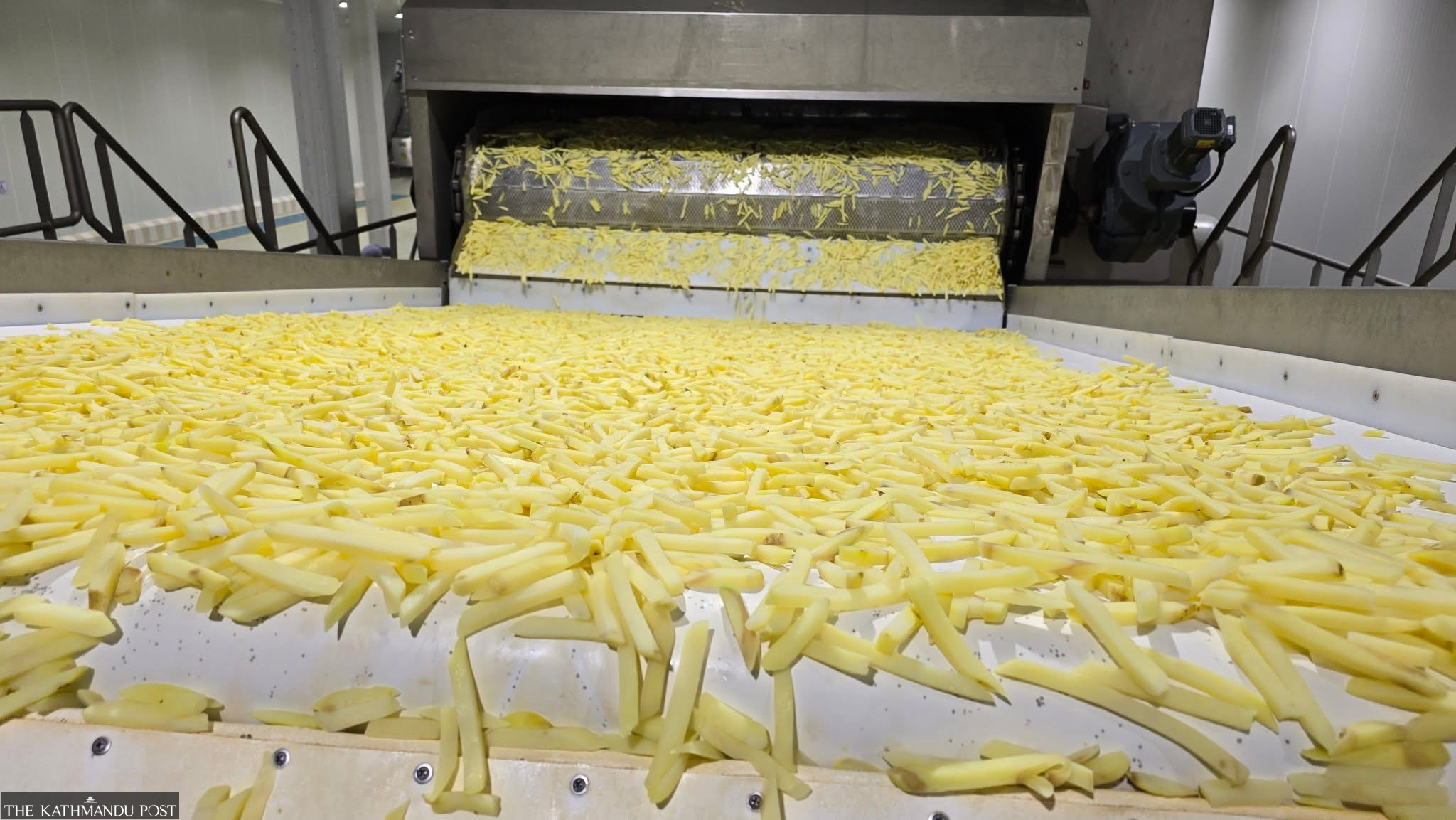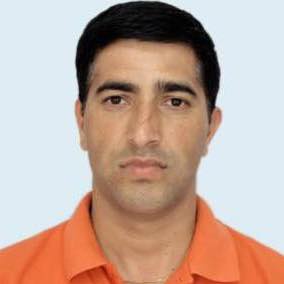National
Nepali-made French fries make forays into US market
Butwal-based First Choice Foods ships its first containers abroad as demand grows. More than 35,000 farmers are linked to its supply chain.
Ghanashyam Gautam
French fries made in Butwal from Nepali potatoes are being exported to the United States, marking a new milestone for Nepal’s processed food industry.
Within the next two months, 41 tonnes of “Himalayan Crisp” and “Hamro Fries” brand frozen potato chips, produced using modern European technology, will be transported by road from Bhairahawa to Kolkata and then shipped by sea to the United States. Two containers reached the Kolkata port last week.
From Kolkata, the shipment takes around 55 days to reach the US, said Krishna Paudel, director of First Choice Foods Pvt Ltd, the manufacturer. The company, established five years ago in Shuddhodhan Rural Municipality–5 of Rupandehi, has been operating commercially for a year.
According to Paudel, the company has replaced around 75 percent of imported French fries in the domestic market within its first year of commercial-scale production. After exporting to India, the firm has now begun shipments to the US and plans to enter the United Kingdom, Australia, Japan, Dubai, Malaysia, and Saudi Arabia next.
It aims to fully substitute foreign fries imports within a year and begin exports to more than a dozen countries.
The company was set up at an estimated cost of Rs2 billion, of which Rs1.5 billion has been invested so far, with further expansion underway. “We are producing two tonnes of French fries per hour using state-of-the-art European technology,” Paudel said. “It is a matter of pride to take products made from the hard work of Nepali farmers to the global market.”
After installing an advanced cold chain, packaging, and quality control system for potato processing, the company secured export approval from the Department of Food Technology and Quality Control.
Besides French fries, First Choice Foods produces crinkle-cut fries, smiles, hash browns, smoky bites, aloo tikki, veg sticks, burger patties, and potato wedges.
The factory has built a nationwide supply network linking around 35,000 farmers from 26 districts. The company procures thousands of tonnes of potatoes annually, buying more than 2,000 tonnes in a single year.
“We maintain a direct relationship with farmers,” Paudel said. “We provide seeds, fertilisers, training, and technical support, and purchase potatoes directly from the fields. Farmers do not have to worry about the market.”
Potatoes are sourced from districts including Kailali, Nawalpur, Sindhuli, Kavre, Makwanpur, Chitwan, Dang, Bara, and Parsa.

The company says it is the first to operate a frozen potato product line in Nepal using European technology. The factory spans five bighas of land, with processing facilities spread over 60,000 square feet.
Shivalal Neupane, chief of the Bhairahawa Customs Office, said the export marks a significant achievement for Nepali farmers.
“For the first time, Nepali French fries are reaching the US,” he said. “The first shipment has brought in $38,200, and we are optimistic this will continue.”
He added that the product was cleared for export only after meeting US Food and Drug Administration (FDA) quality standards.
Paudel said the company has already received orders for 40 containers from the US alone and is currently producing enough to ship two to three containers every week. The fries have a shelf life of 18 months.
Nepal imports more than Rs10 billion worth of frozen food annually, according to the Bhairahawa Customs Office.
More than 200 Nepalis currently work at First Choice Foods. The company distributes its products through five distributors, 12 chain restaurants, 150 suppliers, more than 400 restaurants, and 171 modern marts nationwide.
Baburam Bohora, former president of the Rupandehi Industries Association, said the successful export of locally made fries has strengthened farmers’ trust and helped establish Nepali agricultural products in international markets.
“The real success of this industry is the success of Nepali farmers and the Nepali industry,” he said.
“The state must take responsibility to protect industries that directly engage farmers.” He added that obtaining globally recognised food safety and quality certifications is a major achievement for the company.




 10.12°C Kathmandu
10.12°C Kathmandu














